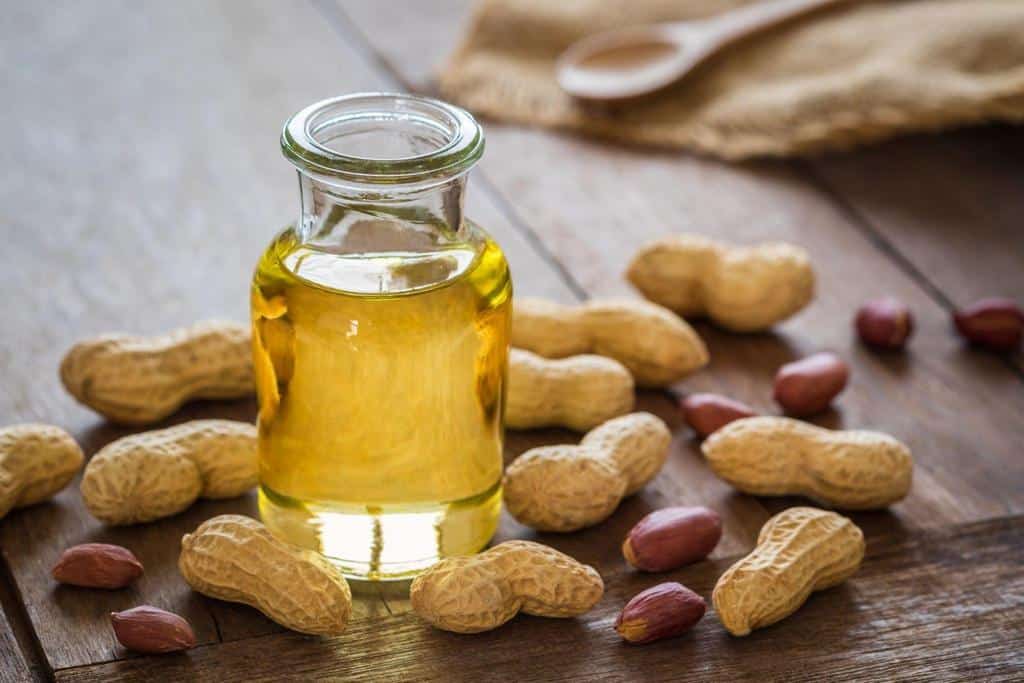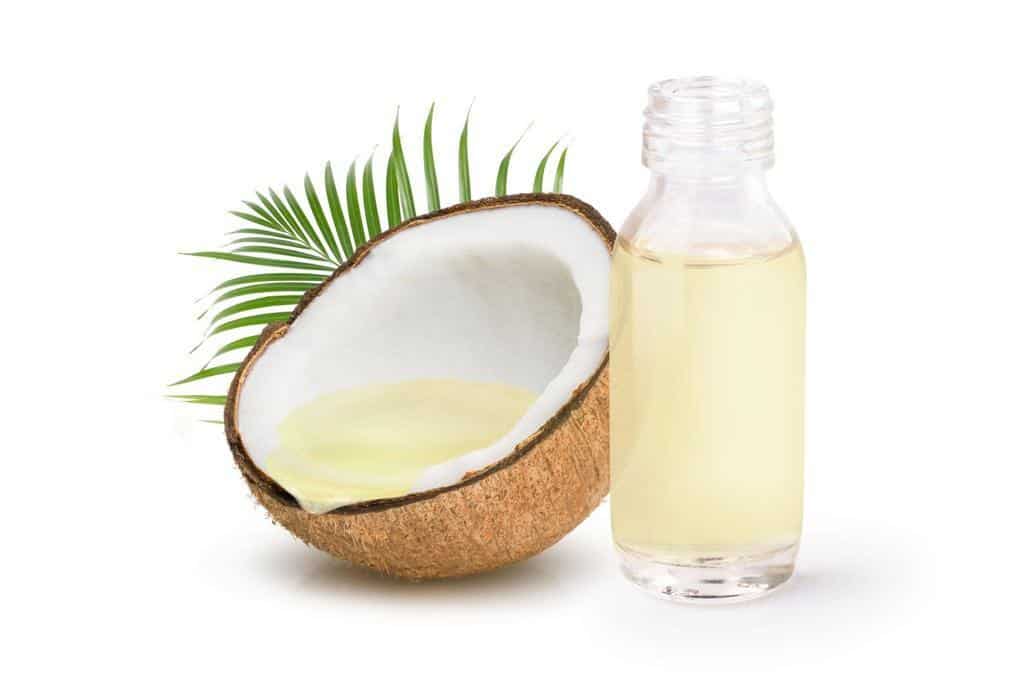What Can You Substitute Sesame Oil With? (10 Best Sesame Oil Alternatives)

Sesame oil is a popular ingredient in many dishes, especially Asian cuisine. It adds a unique flavor and aroma to meals, making it an essential part of some recipes.
However, sesame oil may not be suitable for everyone’s dietary needs or preferences. So, people need substitutes that taste and feel the same without being too heavy or greasy.
Are you in need of a sesame oil substitute for your next recipe but not sure what to use? Look no further! In this post, we will explore a variety of substitutes for sesame oil that will allow you to add flavor and depth to your dishes without the strong, nutty taste of sesame oil.
From peanut oil to olive oil to avocado oil, there are plenty of options to choose from. We’ll also give you tips on how to find the best substitute for your recipe and talk about things to think about when choosing an alternative to sesame oil.
So let’s get started and find the perfect substitute for your next culinary adventure!
Sesame Oil : What It Is and It’s Origin
Sesame oil is a type of oil that is extracted from sesame seeds. It is commonly used in cooking and has a nutty, slightly sweet flavor. Sesame oil is rich in antioxidants and has been used for centuries in traditional medicine to treat a variety of ailments.
Sesame seeds are native to Africa and have been cultivated for thousands of years. The seeds are small and oval-shaped, with a hard outer shell that is typically removed before the seeds are used to extract oil. Sesame seeds are rich in nutrients and are a good source of fiber, protein, and healthy fats.
There are two main types of sesame oil: unrefined and refined.
- Unrefined sesame oil is made from raw sesame seeds and has a strong, nutty flavor. It is often used in Asian cooking and is known for being able to stand up to high temperatures.
- Refined sesame oil is made from roasted sesame seeds and has a milder flavor. It is often used in salad dressings and as a finishing oil for dishes.
Sesame oil has a long shelf life and can be stored for extended periods of time without going rancid. It is also resistant to rancidity, making it a popular choice for cooking oils.
In addition to its use in cooking, sesame oil has also been used in traditional medicine to treat a variety of ailments, including skin conditions and inflammation.
Sesame oil is a versatile and flavorful oil that has been used in cooking and traditional medicine for centuries. It is a rich source of antioxidants and nutrients and has a long shelf life, making it a popular choice for use in a variety of dishes.
Culinary Uses for Sesame Oil
In the culinary world, sesame oil is quickly becoming one of the most popular oils for cooking. Sesame oil is also very versatile and can be used in many different ways while cooking, making it an attractive cooking ingredient.
Here are some culinary uses for sesame oil:
- Sautéing and stir-frying. Sesame oil has a high smoke point, making it a good choice for sautéing and stir-frying. It adds flavor to dishes and can be used in a variety of recipes, including stir-fries, noodles, and rice dishes.
- Marinades and dressings. Sesame oil can be used in marinades to add flavor to meats and vegetables. It is also a popular choice for salad dressings and can be combined with other ingredients, such as vinegar and soy sauce, to create flavorful dressings.
- Grilling. Sesame oil is a good choice for grilling and can be brushed on meats and vegetables to add flavor. It is also a popular choice for glazing dishes, such as teriyaki chicken or beef skewers.
- Dipping sauces. Sesame oil can be used in dipping sauces, such as ponzu or hoisin sauce, to add flavor and depth to the sauce. It is also a popular choice for dipping sauces for sushi and other Japanese dishes.
- Baking. Sesame oil can be used in baking recipes, such as cookies, cakes, and breads, to add flavor. It is also a good choice for making croutons and can be used to coat the outside of bread before baking to give it a crispy, flavorful crust.
Why Need Substitutes for Sesame Oil?
There are several reasons why you may need to find substitutes for sesame oil. One reason is that sesame oil has a strong and distinctive flavor, which may not be suitable for all types of dishes.
In some cases, the flavor of sesame oil can overpower the other ingredients in a recipe, making it difficult to taste the other flavors. This can be particularly problematic if you are trying to create a dish with a subtle or delicate flavor profile.
Another reason to consider substitutes for sesame oil is that it has a relatively low smoke point, which means it can burn and become bitter when heated to high temperatures. This can be an issue if you are using sesame oil for cooking methods that require high heat, such as sautéing or frying.
In these cases, using a substitute with a higher smoke point can help to prevent burning and improve the overall quality of the dish.
Finally, sesame oil may not be suitable for people with allergies or dietary restrictions. Some people are allergic to sesame seeds, and sesame oil may trigger allergic reactions in these individuals. Sesame oil is also not good for people who follow a vegan or plant-based diet because it comes from seeds.
In these cases, finding suitable alternatives for sesame oil can help ensure that you can still enjoy a wide range of dishes without compromising your health or dietary preferences.
Factors to Consider When Choosing a Sesame Oil Substitute
If you’re looking for a healthier or more cost-effective alternative, there are several other options available. Here are some factors to consider when choosing a sesame oil substitute:
1. Flavor Profile
When you’re looking for a substitute for sesame oil, it is important to consider the flavor or taste profile. Sesame oil has a unique nutty and fragrant taste that can be hard to find elsewhere.
If you’re not familiar with the taste of sesame oil, it has a mild aroma and savory notes that give recipes an interesting twist. Make sure your substitute has a similar taste to sesame oil so that your dish doesn’t taste too bland or too strong.
The type of food you are preparing will help determine what type of substitute is best suited for your recipe. For instance, if you are making an Asian-inspired dish, then something like peanut or almond oil would likely be most suitable due to its similarly savory flavors.
2. Smoke Point
When selecting a sesame oil substitute, one of the most important factors to keep in mind is smoke point. The “smoke point” of an oil is the temperature at which it starts to break down and release unwanted compounds that are potentially harmful for human consumption.
Making sure you select an oil with a higher smoke point than sesame oil will help ensure the safety of your food.
Sesame oil has a relatively low smoke point compared to other cooking oils. Its smoke point is around 350 degrees Fahrenheit, which means there are many other options for cooking and baking that can handle higher temperatures.
3. Health Benefits
Not only does taste matter, but the health benefits of each choice are also very important. Here are some of the most important things to consider when choosing a sesame oil alternative for health purposes.
First and foremost, look for options that offer similar nutritional value as sesame oil. Sesame oil is known for having a lot of vitamin E and other important nutrients like magnesium and zinc.
When looking for a replacement, try to find something that has about the same amount of these minerals and vitamins to get the same health benefits.
Also, make sure you know about any allergies or sensitivities that might be linked to different oils before you choose one.
4. Price
When shopping for a sesame oil substitute, one of the most important factors to consider is price. This can vary a lot from brand to brand, so it’s important to find the right option for your budget.
Generally, sesame seed oil substitutes are cheaper than pure sesame oil. However, this doesn’t necessarily mean you should immediately opt for the cheapest option available. It’s important to make sure you’re getting a quality product at an affordable price so that your cooking experience is as enjoyable as possible.
It’s also worth researching different suppliers and stores to see if they offer discounts or bundle deals on their products. Taking time to compare prices across multiple locations will help you get the best deal possible on a sesame oil substitute.
Also, many specialty grocery stores may have special deals or lower prices than larger supermarkets and online retailers.
Olive Oil

Olive oil is a great alternative to sesame oil if you are looking for something that is easier to find and more budget-friendly. This kitchen staple is also versatile and can be used in both sweet and savory dishes.
When using olive oil instead of sesame, keep in mind the flavor profile difference between the two oils. Sesame oil has a nutty, almost smoky flavor, whereas olive oil has an earthy taste with notes of grassiness.
In addition, when substituting these oils, make sure you use light-tasting (aka extra virgin) olive oil; this type of olive oil will have milder flavors than regular or extra-light versions.
Walnut Oil
Walnut oil is a great substitute for sesame oil in recipes. It has an earthy, nutty flavor and aroma that can easily be added to any dish. Walnut oil is thought to be healthier than other oils and fats because it has a lot of polyunsaturated fatty acids, like omega-3s.
Unlike sesame oil, walnut oil does not have a very strong flavor, so it won’t overpower dishes like stir-fries or salads. Instead, it adds subtle nutty undertones that really bring out the flavors of other ingredients in your recipes.
Walnut oil has low levels of saturated fat and is also better for your health than traditional cooking oils like vegetable or corn oil.
Almond Oil
Compared to sesame oil, almond oil tastes much sweeter and creamier and is more frequently used in baking.
Unrefined almond oil is the best oil to cook with because it can be used for many different dishes and has a high smoking point.
One tablespoon of the creamy almond oil gives you 26% of the daily recommended amount of vitamin K, which keeps your blood from clotting and controls the amount of calcium in your blood.
We’ve noticed that almond oil can be a little more difficult to find in local supermarkets, so we’ve linked you to our favorite one to save you from searching the shops.
Grapeseed Oil
Grapeseed oil is often used instead of sesame oil because it doesn’t taste as strong and has a more neutral flavor. This versatile cooking oil is made from pressing the seeds of grapes, making it an excellent choice for those looking to reduce saturated fat in their diet without sacrificing taste or texture.
Grapeseed oil has a mild flavor that allows the natural flavors of food to shine through while providing a rich source of polyunsaturated fats, which can help decrease cholesterol levels.
Because grapeseed oil has a high smoke point, it can be used to fry, sauté, and deep-fry food without much risk of burning or smoking. It also works well as an ingredient in many sauces and marinades due to its light texture and lack of strong flavor.
Peanut Oil

Peanut oil is a great substitute for sesame oil because it tastes the same and has some health benefits on top of that. Peanut oil is one of the healthiest oils you can buy because it is full of healthy monounsaturated fats.
Peanut oil is great if you’re trying to live a healthier life to lower your risk of heart disease. It has compounds that stop cholesterol from being absorbed from food, so you don’t get as much cholesterol from your food.
It also has a high smoke point, making it suitable for use in high-temperature cooking like stir-frying and deep-frying. For those looking to swap out sesame oil without sacrificing taste or nutrition, peanut oil is an excellent alternative.
When used in place of sesame oil, peanut oil gives food a subtle nutty flavor. While it doesn’t have quite the same depth of flavor as sesame, it can still add depth and richness to savory dishes like lettuce wraps or Asian noodle salads.
with
Flaxseed Oil
Flaxseed oil is an excellent substitute for sesame oil in a variety of recipes. This oil is good for your health in many of the same ways as sesame oil. It adds healthy fats and vitamins to your meals. Flaxseed oil is also easy to find in most grocery stores and can be used both cold and hot.
Essential fatty acids, like omega-3s, which are good for heart health and lowering cholesterol, are found in flaxseed oil. It’s also high in antioxidants that help protect against cellular damage and inflammation while providing a nutty flavor to dishes. When substituting flaxseed oil for sesame oil, it is important not to heat the flaxseed oil too much, as it becomes unstable at high temperatures and can lose its nutrition content.
Avocado Oil
Whether you’re looking to reduce your intake of saturated fat or simply don’t have any sesame oil on hand, avocado oil can be an excellent replacement.
With its light flavor and healthy monounsaturated fats, it’s an ideal swap for those who want to make healthier meals without sacrificing taste.
Avocado oil has a mild, almost buttery flavor that will add flavor to your dish without making the other ingredients taste too strong. It also has a higher smoke point than sesame oil, so if you’re looking to cook something at a higher temperature, like stir-frying, it’s perfect for getting the job done without burning or smoking up your kitchen.
Plus, because of its neutral flavor profile, it won’t clash with the other flavors in your meal either!
Coconut Oil
Coconut oil is becoming a popular substitute for sesame oil, especially among health-conscious individuals. Coconut oil has many nutritional benefits that make it an ideal replacement for sesame oil in cooking.
Not only does coconut oil contain healthy fats like lauric acid and medium-chain triglycerides, but it also helps regulate cholesterol and blood sugar levels. Additionally, it may even provide protection against heart disease and stroke.
When using coconut oil as a sesame oil substitute, it’s important to remember that the flavor profile of this product is quite different from its predecessor. Compared to the nutty and earthy taste of sesame oil, coconut oil has a much milder flavor that can easily be overshadowed by other ingredients in a dish.
Canola Oil
Canola oil is a great alternative to sesame oil, as it can add a mild flavor and healthy fats to your meals. This oil comes from plants and has a lot of monounsaturated fat, which has been linked to many health benefits, such as reducing inflammation, keeping cholesterol levels in check, and helping people lose weight.
Canola oil also contains omega-3 fatty acids, which are known for their anti-inflammatory properties. It’s an excellent choice for those who are looking for a healthier option than sesame oil.
When cooking with canola oil instead of sesame oil, it’s important to remember that canola has a lower smoke point than sesame does. To maintain the quality of the dish being prepared, it’s best to keep the heat at or below 350°F when using this substitute.
Even though there is no scientific proof that eating genetically modified food is bad for your health, you should know that most canola oil is genetically modified.
Sunflower Oil

It doesn’t have much of a taste, like many of the alternatives we’re recommending today, but it’s still used in all kinds of food around the world.
It’s readily available in most supermarkets and is on the lower end of the price scale compared to other oils on the market.
It contains a lot of polyunsaturated and monounsaturated fats, which give your body a lot of energy, and vitamin E, which keeps our immunity strong and protects our organs.
Sunflower oil is easy for your body to digest and can sometimes help you go to the bathroom.






